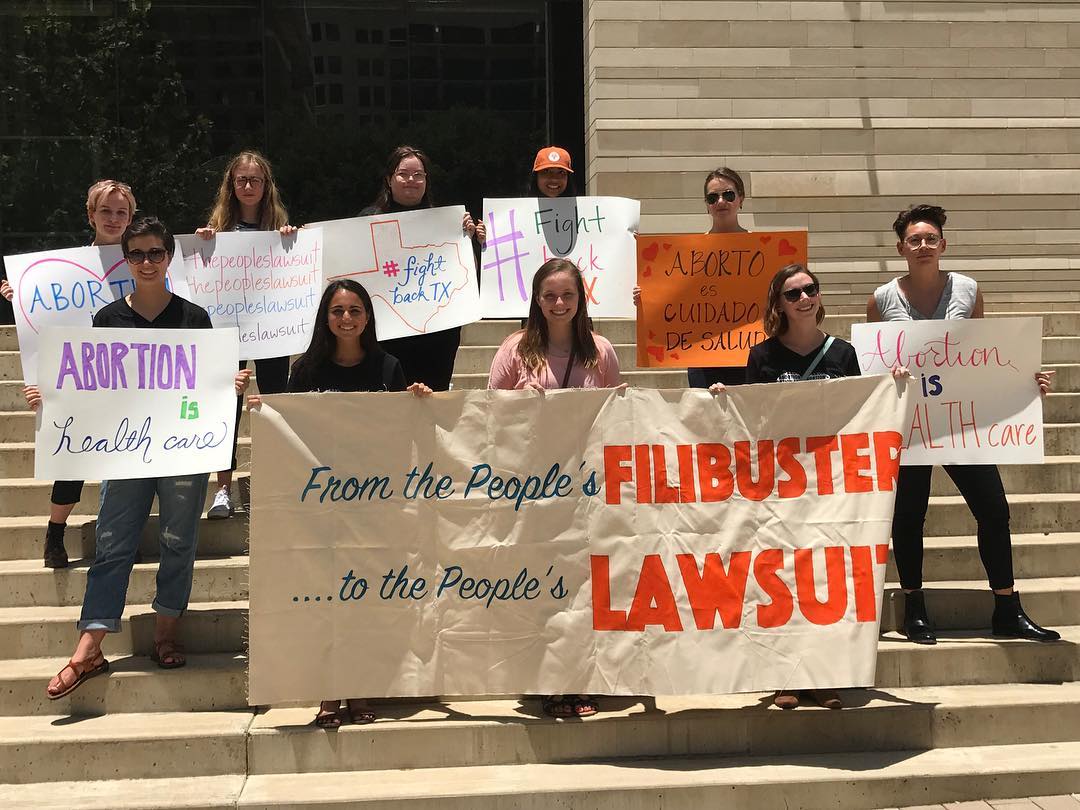
AUSTIN — A federal judge heard arguments Monday in a case challenging dozens of Texas’ restrictive abortion laws.
Texas abortion rights groups sued the state in June, calling for the repeal of, among other laws, the requirement that women have an ultrasound and the mandatory 24-hour waiting period between that examination and the procedure.
“Abortion patients and providers now face a dizzying array of medically unnecessary requirements that are difficult, time-consuming, and costly to navigate — sometimes prohibitively so,” the lawsuit states. “Plaintiffs ask the Court to strike down Texas’ unduly burdensome abortion laws, returning the State to a regime of reasonable and medically appropriate abortion regulation.”
On Monday, U.S. District Judge Lee Yeakel heard 30-minute arguments from the abortion rights groups’ lawyers and the state’s, who argued that the case should be dismissed. They said Texas’ abortion laws are in place to protect women’s health and safety.
These are some of the prominent Texas abortion laws the suit is targeting:
- Abortions can be performed only by a licensed Texas physician.
- A physician must submit a report detailing any abortion complications.
- A follow-up visit must be with the same doctor who performed the abortion.
- The state-required informational pamphlet, “A Woman’s Right to Know,” must be given to women seeking an abortion.
- An ultrasound must be conducted and the woman must listen to the fetal heartbeat before having an abortion.
- There must be a 24-hour waiting period between the ultrasound and abortion.
Parental consent is required for an abortion to be performed on a minor.
Abortion rights advocates have dubbed the suit “the People’s Lawsuit,” a reference to what they called “the People’s Filibuster,” former state Sen. Wendy Davis’ 13-hour attempt to prevent an anti-abortion bill from passing. The suit was filed in the same month as the five-year anniversary of Davis’ filibuster.
The abortion rights groups involved in the suit include Whole Woman’s Health, Planned Parenthood Texas Votes, Davis’ Deeds Not Words and The Afiya Center, a Dallas-based organization that advocates for the reproductive rights of women of color.
A lawyer for the state, Beth Klusmann, said the groups are “overreaching.”
“The [abortion rights groups] are challenging nearly every abortion regulatory law,” she said Monday. “These are laws that have been on the books for years and are common across states. It’s absurd that these laws cause substantial burdens.”
Klusmann said the abortion rights groups are acting on financial interests at the expense of the health of their patients.
“There are no sufficient facts to explain why the laws are burdensome,” she said. “It would be a large waste of time and resources for the state to continue this case. We are regulating abortion as we are constitutionally allowed to do so.”
Stephanie Toti, a lawyer representing the abortion rights groups, said Texas’ laws do place an undue burden on women that the lawsuit points out, including restricting access and making abortion more expensive.
“Once upon a time, Texas had a reasonable regime for regulating abortion, but the system has become so burdensome over the years,” Toti said. “The state believes the laws are more beneficial than burdensome. We will prove that the laws are more burdensome.”
Judge Yeakel questioned the fact that the plaintiffs didn’t include any detailed allegations from actual women in their complaint and commented on the lengthiness of the state’s 73-page brief, saying it shouldn’t take that many words to explain why the laws are just.
Yeakel dismissed the court after each side finished its argument.
“If I’m not able to make a ruling based upon the record, we will re-meet,” he said. “Happy New Year.”
In a news release sent out after the hearing, Texas Attorney General Ken Paxton called the case “baseless” and said he hopes the court will dismiss the lawsuit.
“It’s outrageous that these activists are so dedicated to their radical pro-abortion agenda that they want the courts to repeal laws enacted by the Texas Legislature to protect the health of women getting abortions, such as requiring the sterilization of medical instruments,” Paxton said. “Many of Texas’ common-sense abortion regulations have been in place for decades, are similar to laws passed in a majority of the states, and have been upheld as constitutional by the courts.”
Keep Reading
